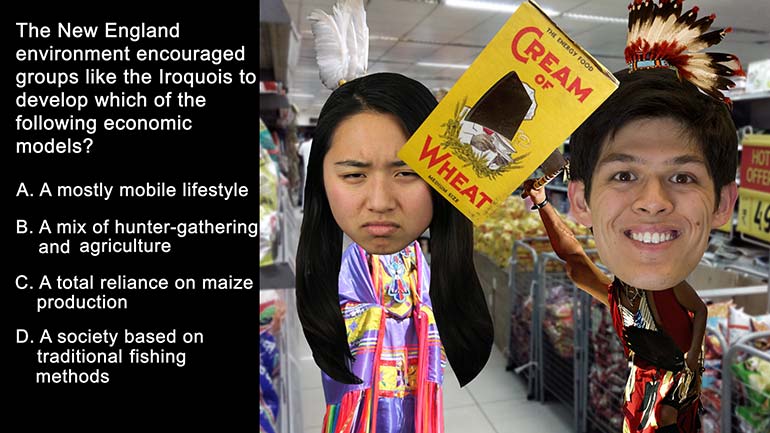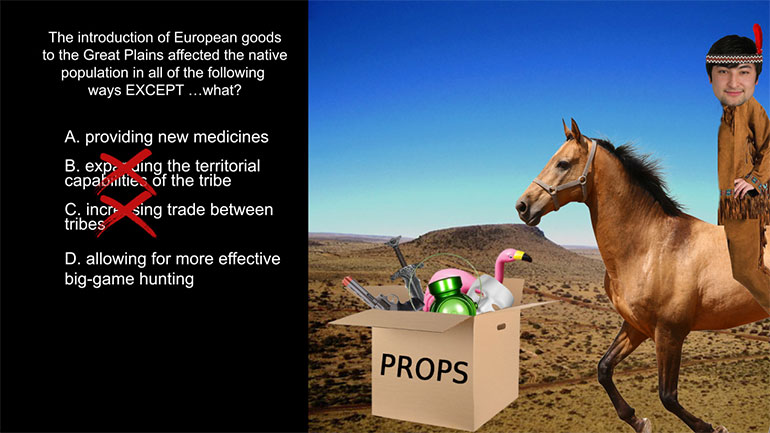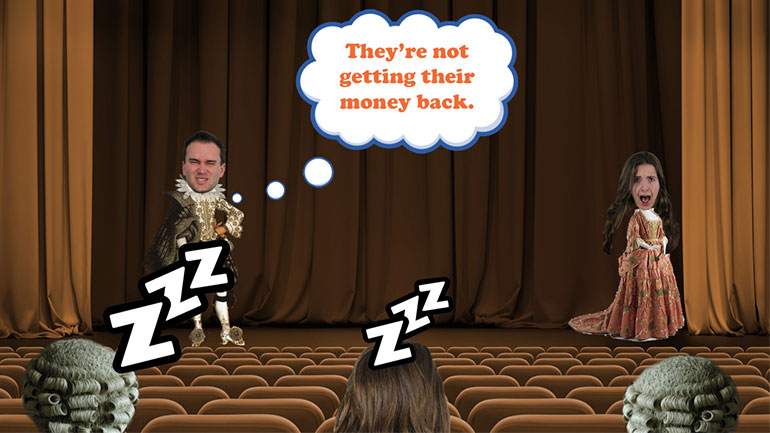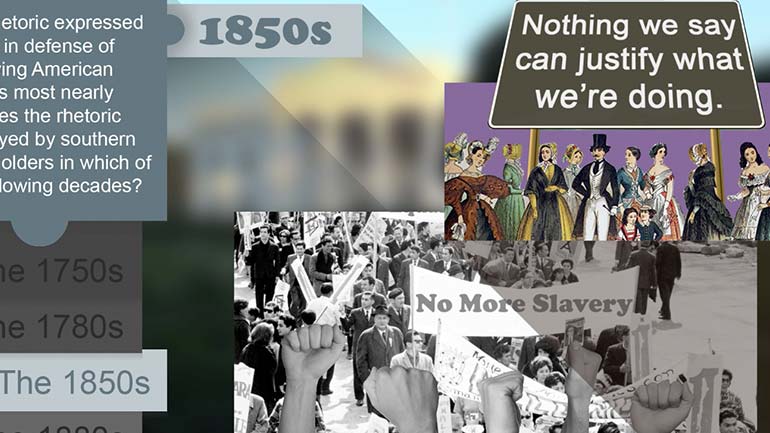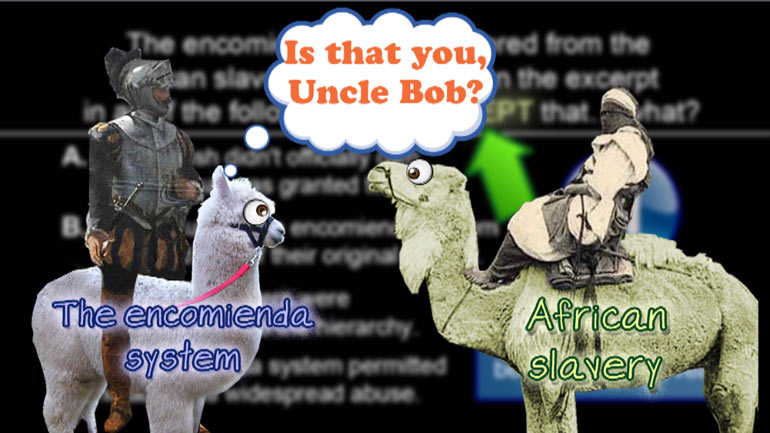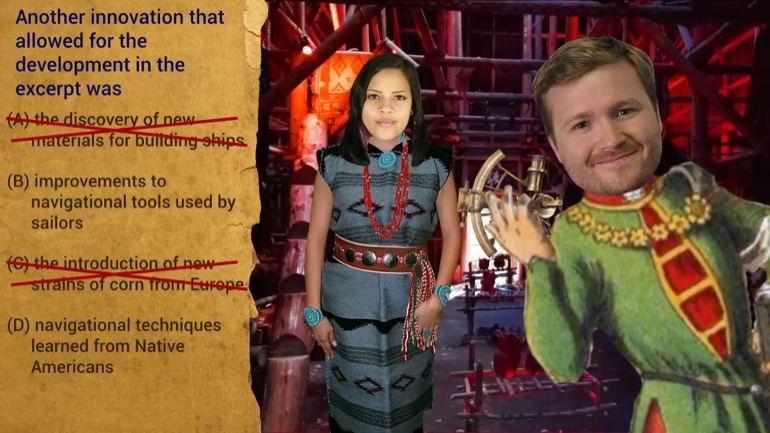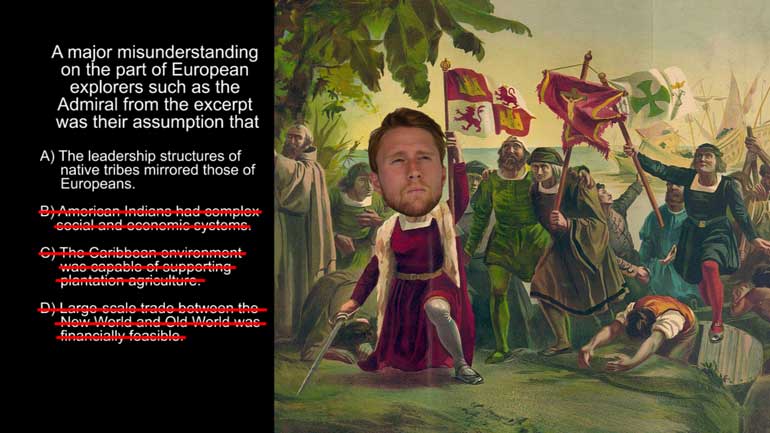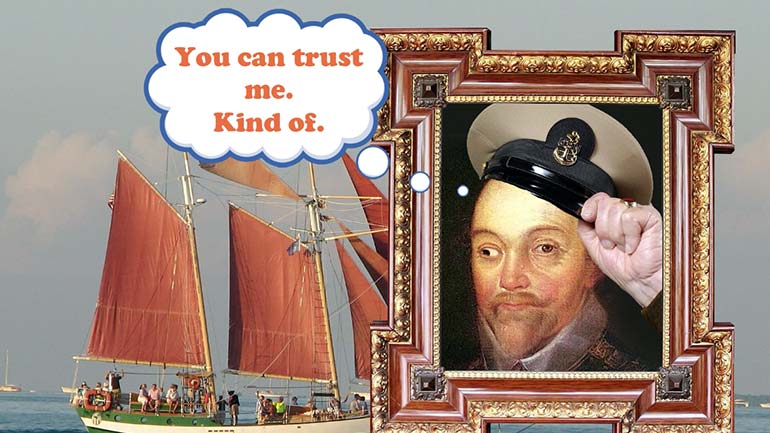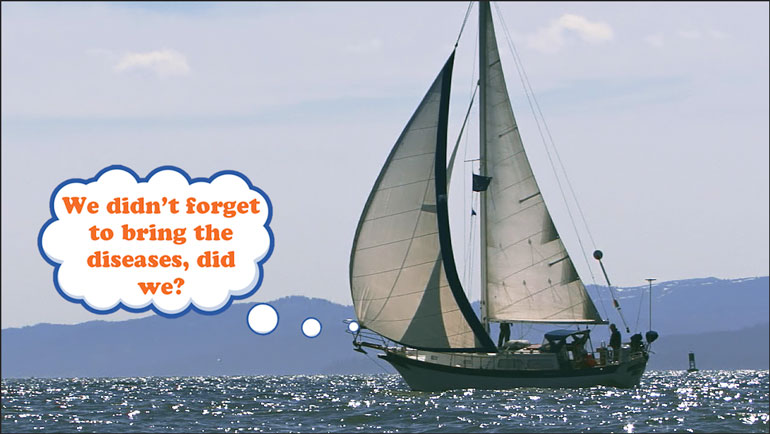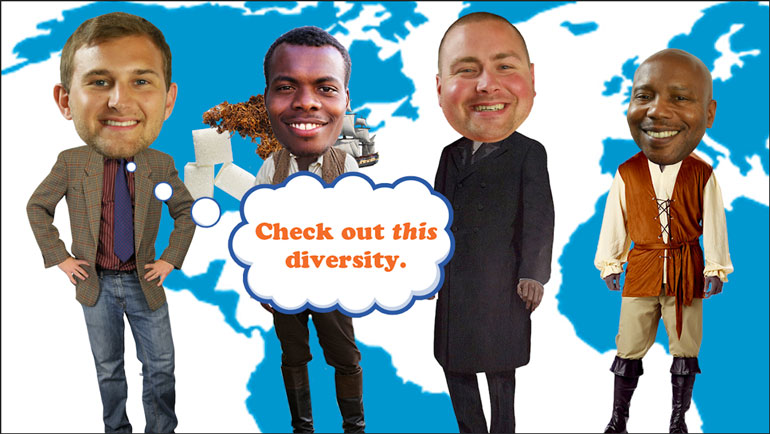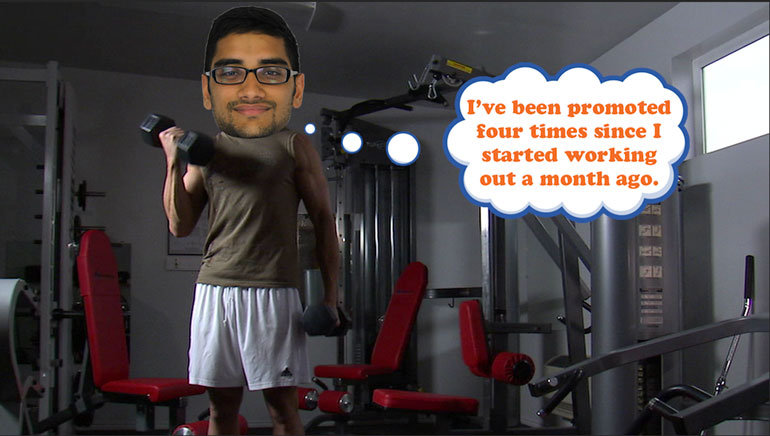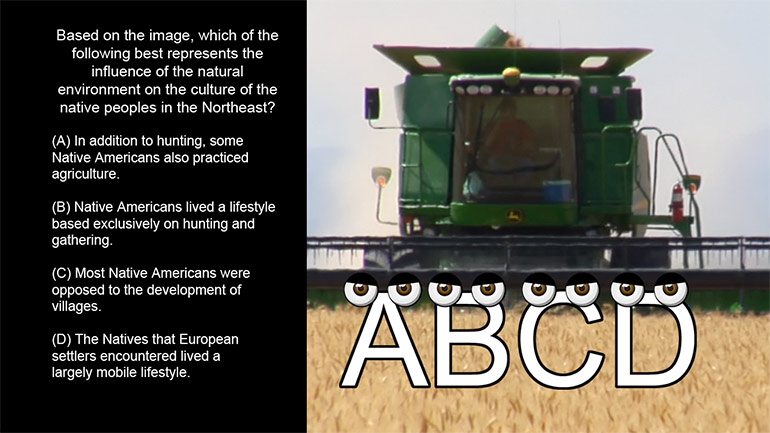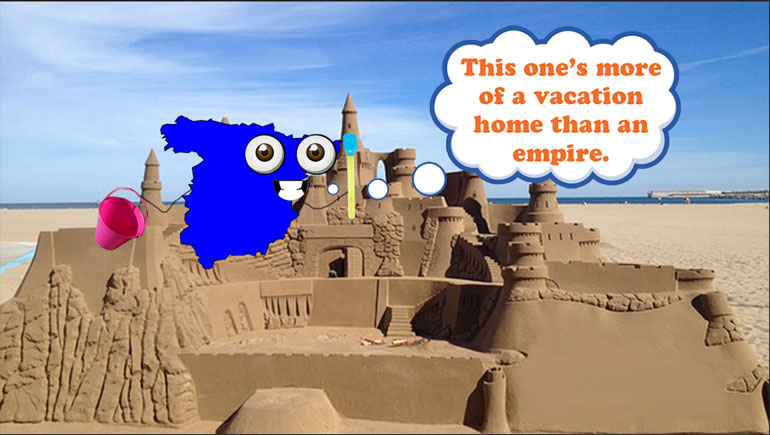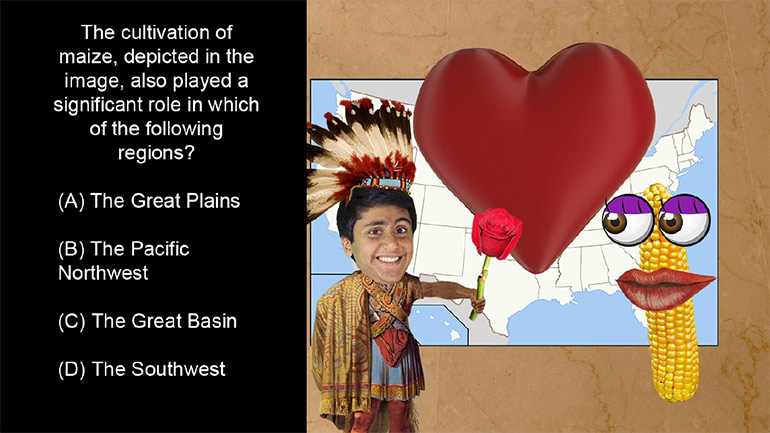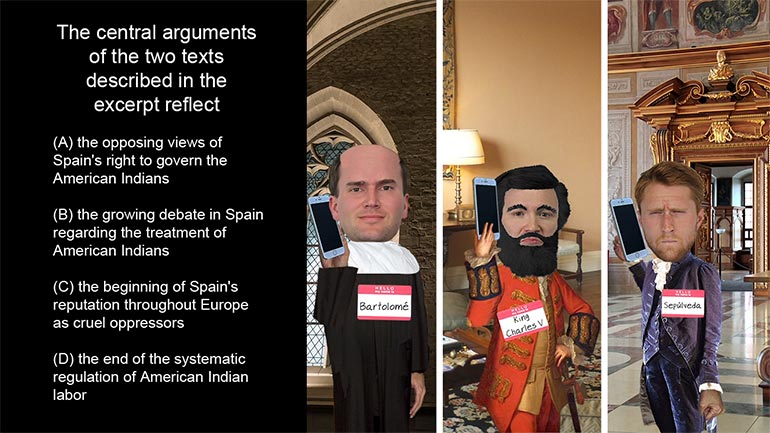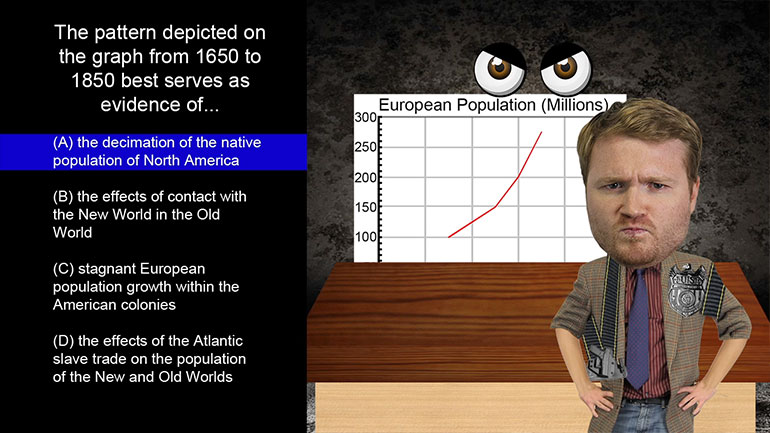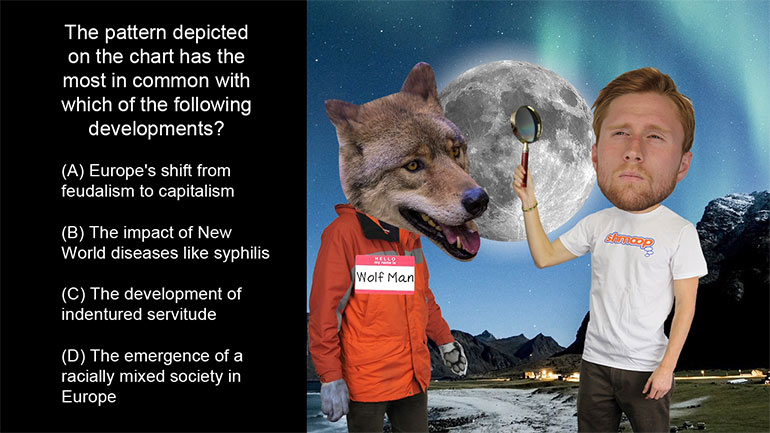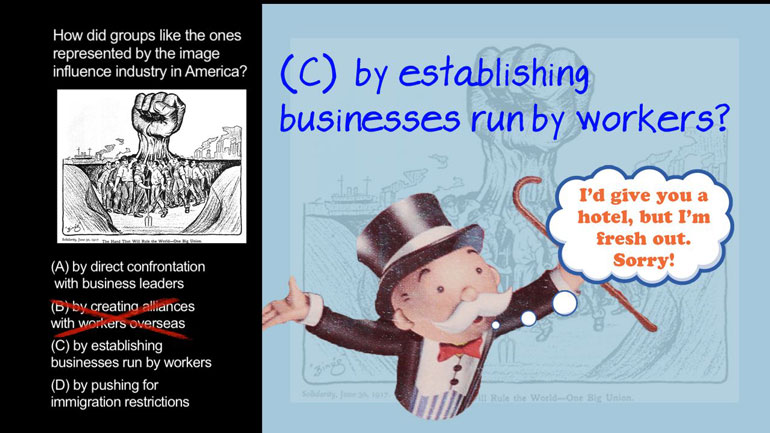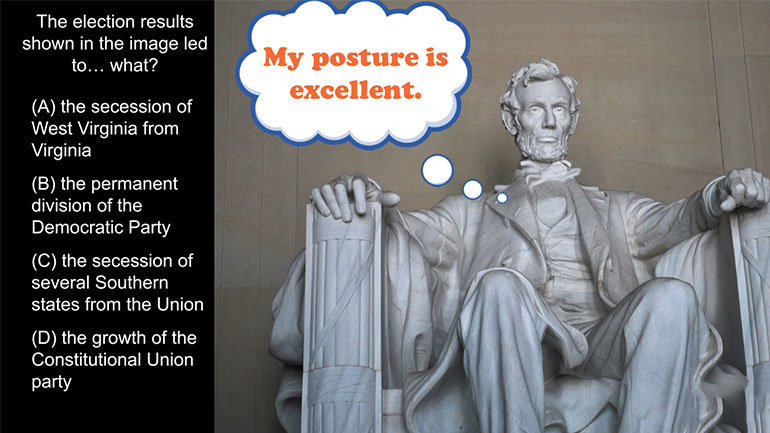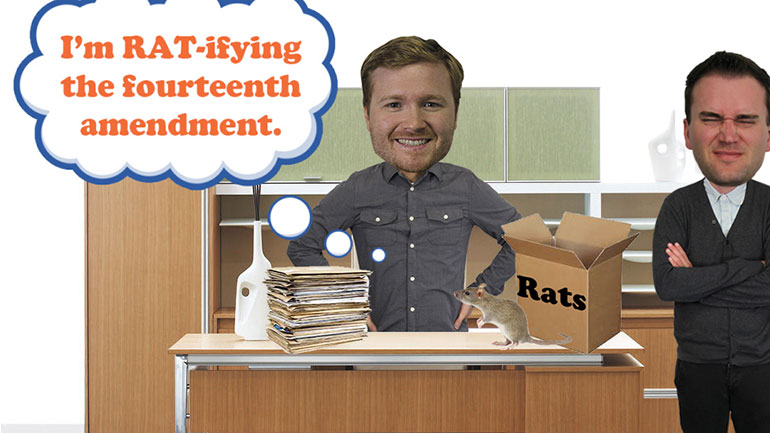ShmoopTube
Where Monty Python meets your 10th grade teacher.
Search Thousands of Shmoop Videos
Period 1: 1491–1607 Videos 20 videos
What kind of economic model did New England's environment encourage the Iroquois, and similar cultures, to adopt?
AP U.S. History 1.2 Period 1: 1491-1607. The introduction of European goods to the Great Plains affected the native population in all of the follow...
AP U.S. History: Period 1: 1491–1607. Drill 1, Problem 3. Increased colonization of the New World was partly facilitated by which of the followin...
AP U.S. History 3.4 Period 1: 1491-1607 201 Views
Share It!
Description:
AP U.S. History 3.4 Period 1: 1491-1607. The argument presented in the description of Sepulveda's work most closely parallels which of the following ideas?
Transcript
- 00:00
Thank you We sneak and here's your shmoop du jour
- 00:05
brought to you by the new world because the old
- 00:07
world couldn't make it up the stairs to deliver it
- 00:10
We'll check the falling excerpts in fifteen ninety seven theology
- 00:13
and alternate indian books opponent fifteen Fifteen friar peaceful process
Full Transcript
- 00:20
Uh and now for our question the argument presented in
- 00:23
the description of suppose it has worked most closely Parallels
- 00:26
which of the following ideas and here's potential answers on
- 00:30
english power Plaything Good All right one heen a day
- 00:38
Sepulveda was all about the bogus philosophy that certain groups
- 00:42
of people were born to be slaves Unfortunately this idea
- 00:45
wasn't particularly controversial during this time On the contrary it
- 00:49
actually drove a bunch of new world economies for hundreds
- 00:52
of years All right Well with all that in mind
- 00:54
we think that is the right answer Sepulveda probably did
- 00:58
think that non american indians were entitled to a cz
- 01:01
much new world land as they wanted an idea better
- 01:04
known as manifest destiny However he was more interested in
- 01:08
spanish land entitlement And last we checked the spanish aren't
- 01:12
anglo saxon You have to go to great britain to
- 01:14
find those folks and no they don't all play the
- 01:16
sax way were disappointed too it's likely that supported it
- 01:21
would also agree with option b based on the passage
- 01:23
it's not totally crazy to think he'd be into the
- 01:26
idea that on ly strong people gain wealth and power
- 01:28
a concept known as social darwinism But again this passage
- 01:32
is specifically focused on spain's right to grind native americans
- 01:36
under its heel De felitta isn't theorizing about how he'll
- 01:40
grinders everywhere have the right to grind the powerless into
- 01:43
submission Well choice do you might be the most obviously
- 01:47
wrong in a bunch this guy's making a case for
- 01:49
force religious conversion what's rational about that believe it or
- 01:53
not supposedto actually was considered a philosopher of humanism of
- 01:56
philosophy that thinks solving problems with logic is well just
- 02:00
swell However that idea is not the basis of his
- 02:03
argument in this passage Well we need to look no
- 02:05
further than answer c to pin down where simple that
- 02:08
is coming from here This guy's convinced that enslaving people
- 02:11
you deemed inferior is a positive way to make a
- 02:14
difference in the world So while his thinking is wrong
- 02:17
on so many levels it does happen to be our
- 02:20
right answer And speaking of levels is the old world
- 02:23
still trying to get up the stairs Now Someone should 00:02:25.74 --> [endTime] tell us that there's an elevator in here somewhere
Related Videos
AP U.S. History Diagnostic 1. Relationships like the one shown in the image resulted in the development of...what?
AP U.S. History Diagnostic 15. How did groups like the ones represented by the image influence industry in America?
AP U.S. History Diagnostic 10. What led to the splintering of the political parties shown in the image?
AP U.S. History Diagnostic 11. The election results shown in the image led to...what?
AP U.S. History Diagnostic 12. How did the Reconstruction Acts open up political opportunities for former slaves?
